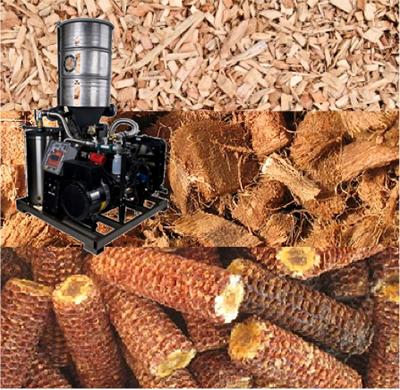Biomass gasification for distributed energy generation is a means of meeting increasing energy demands. Biomass gasifiers produce semi-volatile hydrocarbon compounds, typical gaseous combustion products, particulate matter (PM), and tar compounds during the gasification of the biomass and combustion of the resulting producer gas. This research seeks to quantify and characterize these emissions at various points within the process from production to end use.
Producer gas is generated and combusted using a 10 kW Power Pallet designed and built by All Power Labs, Inc. This system uses a modified downdraft reactor with a natural gas, spark ignited engine to generate electricity. Organic solvents are measured using by gas chromatography with thermal conductivity detector to determine the concentrations of C1-C6 gaseous hydrocarbons as well as benzene, toluene, ethylbenzene and m- and o- xylenes. A Raman Laser Gas Analyzer is used to measure typical combustion gases as well as total hydrocarbon concentrations (CxHy). PM is measured using an impactor in front of a filter for gravimetric analysis. Finally, elemental carbon to organic carbon ratio analysis is performed on gas samples from the various sampling locations. The ability of the gasifier to remove potentially harmful compounds generated during the gasification process will be determined.
